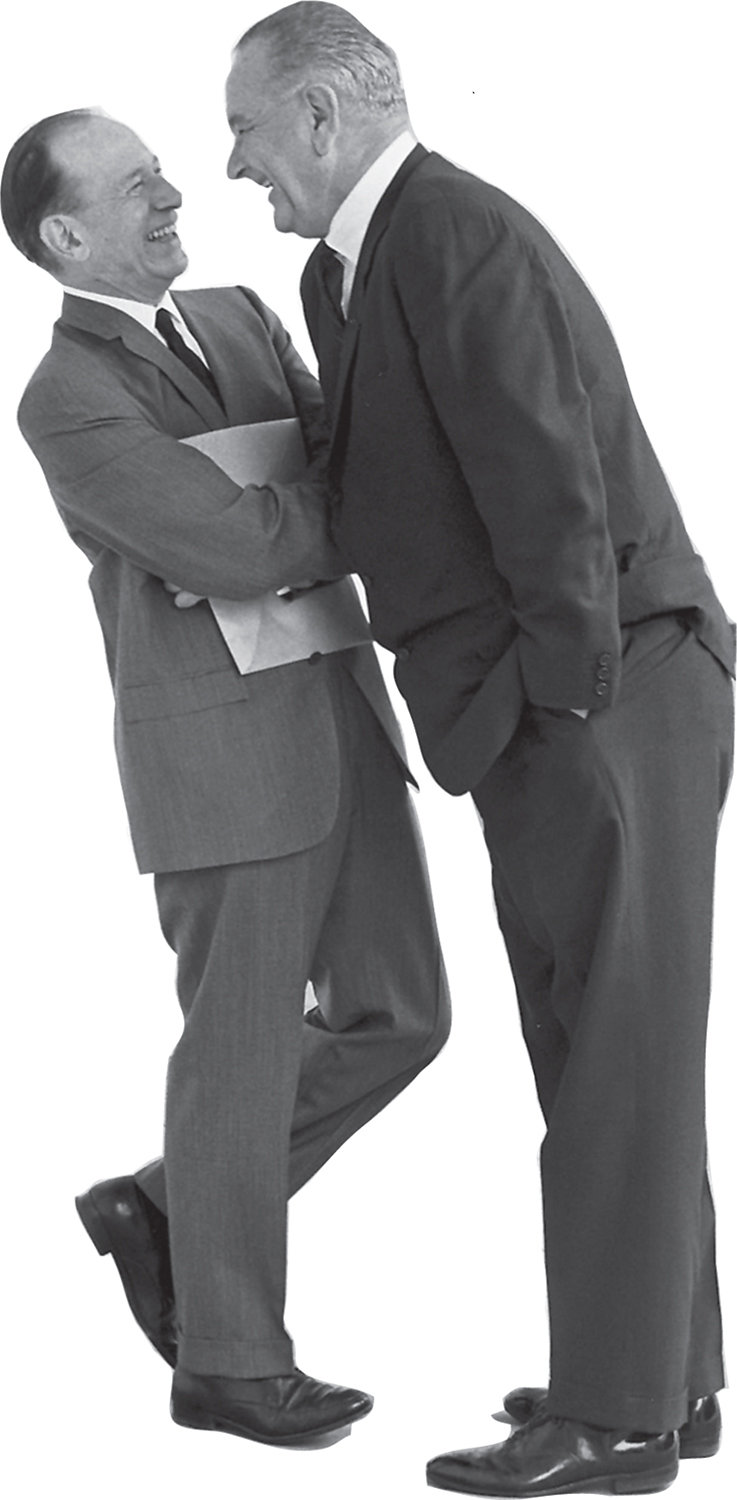The American Promise:
Printed Page 799
The American Promise Value
Edition: Printed Page 743
Johnson Fulfills the Kennedy Promise

Lyndon B. Johnson assumed the presidency with a wealth of political experience. A self-
Lacking Kennedy’s sophistication, Johnson excelled behind the scenes, where he could entice, maneuver, or threaten legislators to support his objectives. His persuasive power, the famous “Johnson treatment,” became legendary. In his ability to achieve his legislative goals, Johnson had few peers in American history.
Johnson entreated Congress to act so that “John Fitzgerald Kennedy did not live or die in vain.” He pushed through Kennedy’s tax cut bill by February 1964. More remarkable was passage of the Civil Rights Act of 1964, which made discrimination in employment, education, and public accommodations illegal. The strongest such measure since Reconstruction required every ounce of Johnson’s political skill to pry sufficient votes from Republicans to balance the “nays” of southern Democrats. Senate Republican leader Everett Dirksen’s aide reported that Johnson “never left him alone for thirty minutes.” In proportion to their numbers in Congress, more Republicans voted for the measure than Democrats.
Antipoverty legislation followed fast on the heels of the Civil Rights Act. Johnson announced “an unconditional war on poverty” in his January 1964 State of the Union message, and in August Congress passed the Economic Opportunity Act. The law authorized ten new programs, allocating $800 million—
The most novel and controversial part of the law, the Community Action Program (CAP), required “maximum feasible participation” of the poor themselves in antipoverty projects. Poor people began to organize to make welfare agencies, school boards, police departments, and housing authorities more accountable to the people they served. When the local Democratic officials complained, Johnson backed off from pushing genuine representation for the poor. Still, CAP gave people usually excluded from government an opportunity to act on their own behalf and develop leadership skills.